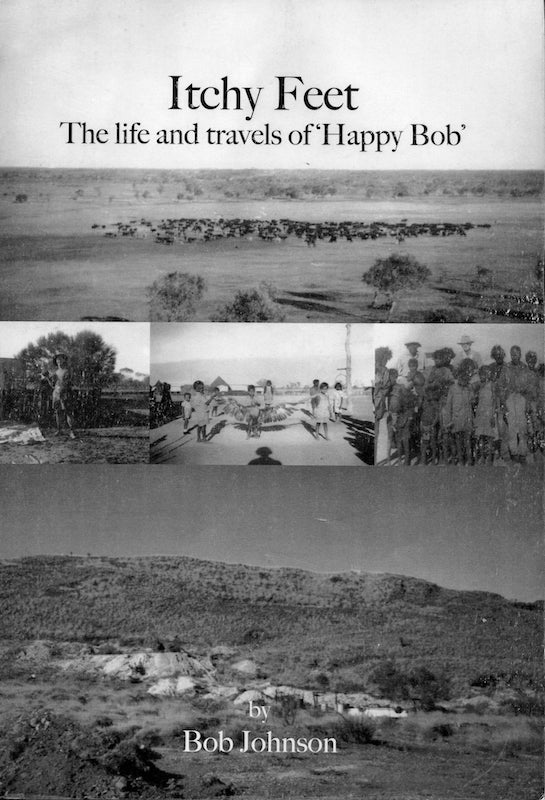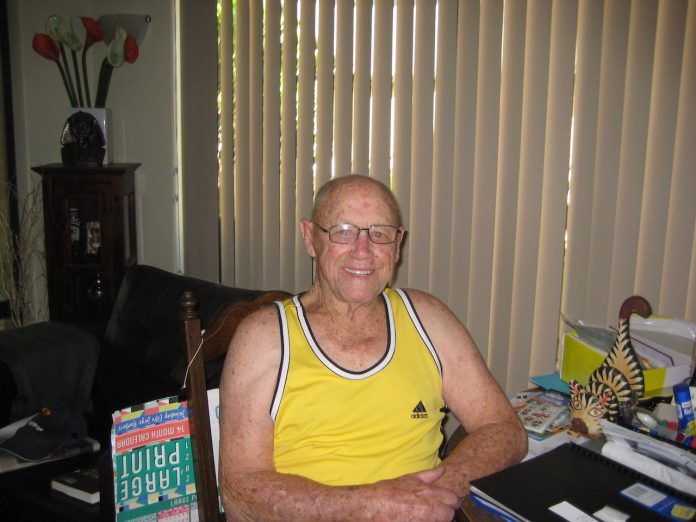Bob Johnson says that when he embarked on life as a young lad he always wanted to see what was around the next corner which was why he had so many jobs, the prolific letter writer tells Have a Go News.
Ninety-three years young, Bob, of Bassendean, has had letters published in Have a Go News in recent months on all manner of things. He’s recalled times in World War II when the first American ships arrived in Fremantle to set up a base for troops after Pearl Harbour and the invasion of the Philippines and state ships heading up north with teams of shearers and seasonal workers, helping boost the economy in various towns, a far cry from today’s fly-in, fly-out workers.
Bob, who generally keeps good health for his age, says he sometimes writes 10 letters a month to old friends. “I enjoy every day I wake up,” he chuckles.
“In my younger days, I would take a path and that often led to other paths.”
Born in Fremantle in 1927, Bob grew up in Hamilton Hill, attending primary school and Fremantle Boys School. During World War II he studied carpentry, fitting and turning and mechanics at Fremantle Technical College.
“In between, I enjoyed fishing and swimming,” he said.
“I had a newspaper round and the day Japan declared war five editions of the Daily News came out. I wagged school that day to cash in, but editions were limited and sold out. People were hanging out windows trying to get copies, it finished up a great day as the tips were coming thick and fast.
“After school, I was offered a job with Associated Engineers in Perth. The firm, consulting engineers from Singapore, had carried out the Collie distillation plant and the Boyup Book flax mill as war-time projects.
“I spent a couple of weeks in the Perth office, then was sent to Bindi Bindi to help survey an asbestos mine. When the firm closed, I was asked to go to Wodgina, a tantalite mine at Port Hedland in 1944.”
I enjoy every day I wake up
In his book, Itchy Feet, the life and travels of Happy Bob he says: “From the start I got itchy feet and wanted to see the world. For the next 20 years I just wanted to keep on moving. Family life tied me down, also slowed me down.”
“At Wodgina my first job was with a tinsmith making a thickener tank. This was my second time away from home and the mess was strange but I soon got the hang of it all.”
About June 1945 Bob went to work on Fremantle wharf.
“At that time a labour shortage created what was known as the Seagulls Union,” Bob recalls.
“We did labour that the lumpers rejected as too dirty such as unloading boats of coal, superphosphate, sulphur and wheat.”
Bob headed to Kalgoorlie from 1945–47.
“Me and a friend decided to go there by train on a working holiday while waiting for callup. We went to the Great Boulder mine by tram and secured work on the main shaft though I did spend a couple of days on the Christmas Eve shaft, one of the original shafts.”
Bob returned to Perth but missed his callup as the war was ending, doing some work at Fremantle wharf before heading back to Kalgoorlie and working at various mines.
Later, he worked at sheep stations up north, at Wittenoom Gorge in 1947, Dean Mill, Manjimup and Broome meatworks in 1948 and the Big Bell mine in 1949.

Life changed for Bob in 1950 when he married June who he met at the Governor Broome Hotel. The couple went on to have five children, 10 grandchildren and 10 great grandchildren, June passing away in 2012.
The couple had an interesting life up north, working on Moola Bulla cattle station 20km west of Halls Creek. Several other jobs followed before Bob and his family finally settled in Perth, living in Mandurah and Bassendean.
Bob is a true West Australian with a colourful life which took him around the State. Now he’s happy to write a letter or two and reminisce about days gone by.



































